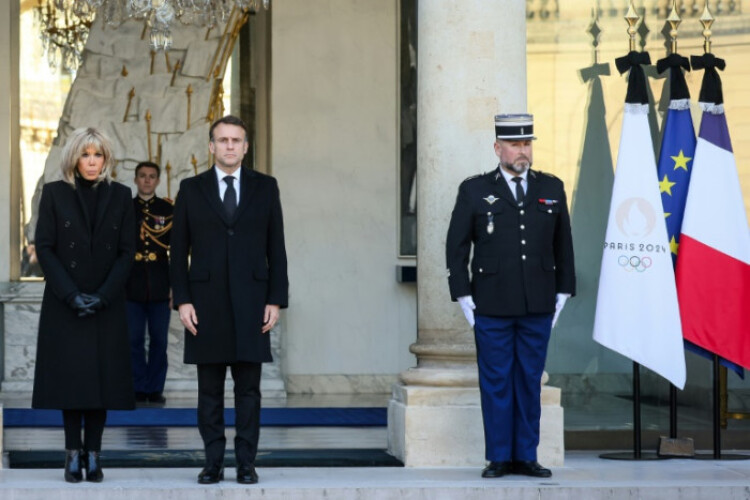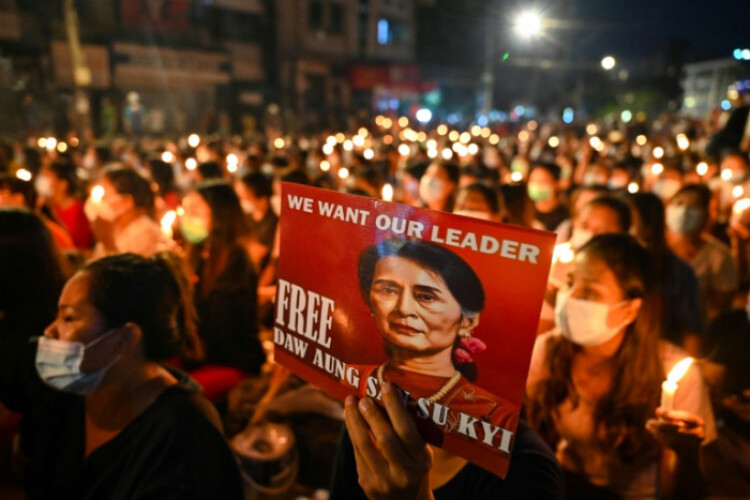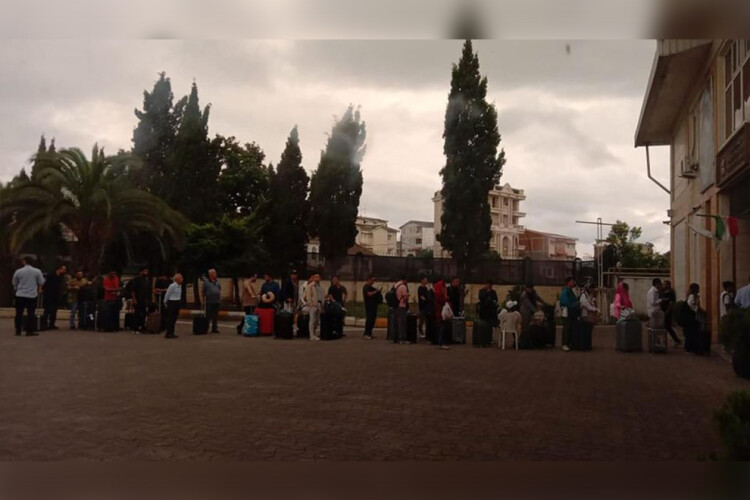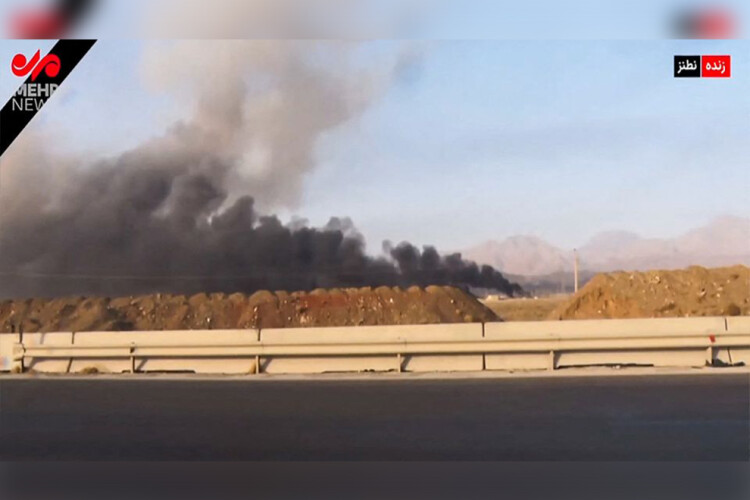
PARIS - French President Emmanuel Macron named a new government Monday evening, putting together a team under Francois Bayrou, his fourth prime minister of the year, to drag the second-largest EU economy out of political crisis.
Macron named former prime minister Elisabeth Borne, 63, education minister in a new cabinet under centrist Bayrou, announced Elysee secretary-general Alexis Kohler.
Another former premier, Manuel Valls, 62, returned as overseas territories minister, while former interior minister Gerald Darmanin became justice minister.
Both Defence Minister Sebastien Lecornu and Foreign Minister Jean-Noel Barrot kept their jobs, the presidency said.
Lecornu, a 38-year-old loyalist with a keen political nose, has served in every government since Macron's first election as president in 2017.
Conservative Interior Minister Bruno Retailleau, who has vowed to crack down on illegal immigration, and right-wing Culture Minister Rachida Dati, also stayed in their posts.
The difficult job of delivering a budget plan for next year falls to Eric Lombard, head of public-sector lender Caisse des Depots (CDC), who was named economy minister.
"I'm very proud of the team we're presenting this evening," Bayrou said on X, adding his "experienced" cabinet would aim to "rebuild trust".
The inclusion of two former prime ministers indicates Macron's desire for a heavyweight government that will enjoy stability and not share the fate of Bayrou's predecessor, Michel Barnier, ousted in a no-confidence vote.
Bayrou had hoped to bring in figures from the left, right and centre to protect his government from possible censure, but his 35-member team does not include any members of the left-wing coalition New Popular Front.
Macron will assemble Bayrou's team on January 3 for a first Council of Ministers meeting, the presidency said.
Barnier was brought down over his failure to win support for an austerity budget to shore up France's shaky finances with spending cuts and tax rises.
The priority for 73-year-old Bayrou is to make sure his government can survive a no-confidence vote and that it passes a cost-cutting budget for 2025.
The unexpected comeback of Valls, premier from 2014 to 2016, as the head of the overseas territories ministry indicates the importance of the post after authorities were strongly criticised for their response to the deadly cyclone on the Indian Ocean territory of Mayotte, which killed at least 35 people.
Darmanin had long been known to covet the post of foreign minister, but after days of intense discussions will have to content himself with the justice ministry.
- Far-right 'backing' -
Just before the official announcement, heavyweight right-wing politician Xavier Bertrand, who had been tipped for the health ministry, announced he would not be part of the government. He alleged that it had been formed with the implicit "backing" of far-right leader Marine Le Pen, who will play a key role in ensuring its survival.
"The prime minister informed me this morning, contrary to what he had proposed yesterday, that he was no longer in a position to entrust me with responsibility for the justice ministry due to opposition from (Le Pen's) National Rally," Bertrand said in a statement.
"Despite his new proposals, I refuse to take part in a government of France formed with the backing of Marine Le Pen."
Bertrand is a major irritant for the far right, which he has long opposed.
Le Pen on March 31, 2025 faces the verdict in an embezzlement trial on charges she denies. If convicted, she could lose the chance of standing in the 2027 elections and with it her best chance yet of winning the presidency.
The announcement came as France observed a day of mourning for victims in cyclone-hit Mayotte, France's poorest overseas territory.
Bayrou, the head of the centrist MoDem group, which is allied to Macron's party, was appointed on December 13. He is the sixth prime minister of Macron's mandate.
Many already predict Bayrou will struggle to survive.
France has been mired in deadlock since Macron gambled on snap elections this summer in the hopes of bolstering his authority. The move backfired, with voters electing a parliament fractured between three rival blocs.
Le Pen suggested Macron has been weakened by months of political crisis and would eventually have to resign.
"I am preparing for an early presidential election," she told French newspaper Le Parisien last week.
Macron named former prime minister Elisabeth Borne, 63, education minister in a new cabinet under centrist Bayrou, announced Elysee secretary-general Alexis Kohler.
Another former premier, Manuel Valls, 62, returned as overseas territories minister, while former interior minister Gerald Darmanin became justice minister.
Both Defence Minister Sebastien Lecornu and Foreign Minister Jean-Noel Barrot kept their jobs, the presidency said.
Lecornu, a 38-year-old loyalist with a keen political nose, has served in every government since Macron's first election as president in 2017.
Conservative Interior Minister Bruno Retailleau, who has vowed to crack down on illegal immigration, and right-wing Culture Minister Rachida Dati, also stayed in their posts.
The difficult job of delivering a budget plan for next year falls to Eric Lombard, head of public-sector lender Caisse des Depots (CDC), who was named economy minister.
"I'm very proud of the team we're presenting this evening," Bayrou said on X, adding his "experienced" cabinet would aim to "rebuild trust".
The inclusion of two former prime ministers indicates Macron's desire for a heavyweight government that will enjoy stability and not share the fate of Bayrou's predecessor, Michel Barnier, ousted in a no-confidence vote.
Bayrou had hoped to bring in figures from the left, right and centre to protect his government from possible censure, but his 35-member team does not include any members of the left-wing coalition New Popular Front.
Macron will assemble Bayrou's team on January 3 for a first Council of Ministers meeting, the presidency said.
Barnier was brought down over his failure to win support for an austerity budget to shore up France's shaky finances with spending cuts and tax rises.
The priority for 73-year-old Bayrou is to make sure his government can survive a no-confidence vote and that it passes a cost-cutting budget for 2025.
The unexpected comeback of Valls, premier from 2014 to 2016, as the head of the overseas territories ministry indicates the importance of the post after authorities were strongly criticised for their response to the deadly cyclone on the Indian Ocean territory of Mayotte, which killed at least 35 people.
Darmanin had long been known to covet the post of foreign minister, but after days of intense discussions will have to content himself with the justice ministry.
- Far-right 'backing' -
Just before the official announcement, heavyweight right-wing politician Xavier Bertrand, who had been tipped for the health ministry, announced he would not be part of the government. He alleged that it had been formed with the implicit "backing" of far-right leader Marine Le Pen, who will play a key role in ensuring its survival.
"The prime minister informed me this morning, contrary to what he had proposed yesterday, that he was no longer in a position to entrust me with responsibility for the justice ministry due to opposition from (Le Pen's) National Rally," Bertrand said in a statement.
"Despite his new proposals, I refuse to take part in a government of France formed with the backing of Marine Le Pen."
Bertrand is a major irritant for the far right, which he has long opposed.
Le Pen on March 31, 2025 faces the verdict in an embezzlement trial on charges she denies. If convicted, she could lose the chance of standing in the 2027 elections and with it her best chance yet of winning the presidency.
The announcement came as France observed a day of mourning for victims in cyclone-hit Mayotte, France's poorest overseas territory.
Bayrou, the head of the centrist MoDem group, which is allied to Macron's party, was appointed on December 13. He is the sixth prime minister of Macron's mandate.
Many already predict Bayrou will struggle to survive.
France has been mired in deadlock since Macron gambled on snap elections this summer in the hopes of bolstering his authority. The move backfired, with voters electing a parliament fractured between three rival blocs.
Le Pen suggested Macron has been weakened by months of political crisis and would eventually have to resign.
"I am preparing for an early presidential election," she told French newspaper Le Parisien last week.










